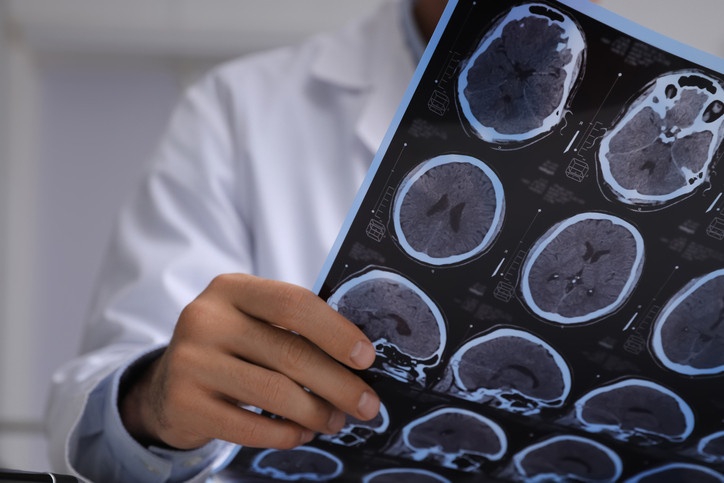Adjusting to Life with a Traumatic Brain Injury
Table of Contents
ToggleAt Donaldson Law, LLC, our Denver personal injury attorneys represent clients throughout Colorado who have suffered traumatic brain injuries caused by another person or party’s negligence.
Unfortunately, these significant, often life-changing, injuries occur often here and across the country. According to the Centers for Disease Control (CDC), one person in the United States suffers a traumatic brain injury every 23 seconds. Further, CDC statistics show that traumatic brain-related injuries lead to nearly 300,000 hospitalizations and more than 90,000 long-term disabilities each year.
What most people do not know is there are different types and stages of brain injuries that can impact the injured person and their families in diverse and meaningful ways.
Here, we discuss those differences and provide multiple resources for those seeking help.
What are the Different Types of Brain Injuries?
According to the CDC, two major types of brain injuries occur in the U.S.
The first is a Traumatic Brain Injury or TBI.
These injuries affect how the brain works and may be caused by a bump, blow, or jolt to the head or a penetrating injury.
TBIs occur most during, statistically in order:
- Falls.
- Struck by or against an object.
- Motor vehicle collisions.
- Assaults.
- Sports injuries.
There are three main types of TBI:
- Mild TBI or concussion, which causeschanges in the brain and leads to symptoms that may affect how a person thinks, learns, feels, acts, and sleeps.
- Moderate or Severe TBI may lead to long-term or life-long health problems that may affect all aspects of a person’s life. These health problems have been similar to the effects of a chronic disease.
There were over 69,000 TBI-related deaths in the United States last year. That is about 190 TBI-related deaths every day. In addition, approximately 5.5 million people live with a TBI-related disability in the U.S., affecting one in sixty people throughout the country.
The second type of brain injury is called an Acquired Brain Injury (ABI), which affects more than 3.5 million Americans each year.
ABIs are typically caused by developing circumstances, which may include:
- Electric Shock.
- Infectious Diseases.
- Lightning Strikes.
- Near Drownings.
- Oxygen Deprivation.
- Seizures.
- Strokes.
- Substance Abuse or Overdose.
- Toxic Exposure.
- Tumors.
No matter which type of brain injury a person has, it can negatively impact their cognitive, physical, emotional, and behavioral abilities, which can lead to significant challenges and compromise their quality of life.
What Resources are Available for Brain Injury Survivors and Their Families?
Support groups can be incredibly valuable for TBI and ABI survivors and their families. They provide a sense of community, a safe space to share experiences, and access to helpful information and coping strategies.
Some include the:
BIAA has chapters across the United States, and many organize TBI support groups locally, including in Colorado.
Some support groups operate nationally or online, allowing people from various locations to connect, including:
- TBI Survivors Network
An online community where survivors and families can share their stories and experiences.
A website and community dedicated to TBI support and advocacy.
- Local Hospitals and Rehabilitation Centers
Many healthcare facilities offer TBI support groups as part of their rehabilitation programs. Contact local hospitals and rehabilitation centers to inquire about their support group offerings.
- Facebook Groups
Many TBI and ABI support groups have a presence on Facebook. You can search for relevant groups or inquire on brain injury-related Facebook pages.
- Other Nonprofit Organizations
Various nonprofit organizations offer local support groups. Look for organizations specializing in brain injuries and related conditions.
- Veterans Affairs (VA) Programs
The VA may offer support groups for veterans who have experienced brain injuries.
- Counseling Services
Some mental health professionals or counseling services specialize in brain injury support and may offer group therapy sessions.
When seeking a support group, consider the following factors:
- Location
Choose a group that is easily accessible to you or your loved one, whether in your local community or online.
- Type of Group
Some support groups are tailored specifically for TBI survivors, while others may include family members and caregivers. Find one that suits your needs.
- Frequency and Structure
Support groups can vary in how often they meet and their format. Some meet weekly, bi-weekly, or monthly, and some are more structured than others.
- Leadership
Determine if the group is led by a professional facilitator or is peer-led, as this can affect the group dynamics.
- Size
Consider whether you prefer a smaller, more intimate group or a larger one.
- Specific Needs
Some groups may cater to specific TBI-related challenges, such as those focused on post-concussion syndrome, pediatric TBI, or military-related TBI.
Support groups can be a valuable resource for sharing experiences, learning from others, and building a network of people who understand the challenges of living with a brain injury.
Partner with Experienced Catastrophic Injury Attorneys in Denver, Colorado
Brain injuries often lead to extraordinary costs that the injured or their family are not prepared to endure without facing financial hardship as a result. While we hope you never need us, if you or someone you love has suffered a catastrophic brain injury caused by negligence, contact our skilled personal injury lawyers in Denver at Donaldson Law, LLC by calling (720) 458-5000 or contact us online to schedule a free, confidential consultation to discuss your case.


